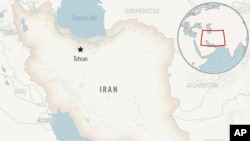Recent reports highlight a significant decrease in the average import of essential goods in Iran over the past eight months, with some of those declines topping 50% or more. Additionally, Iran witnessed a sharp decline in November in red meat production, compared to the same month last year.
Analysts interpret this trend as an alarming sign, indicating a potential crisis in the supply of essential food items, leading to shortages in the market.
The Tasnim News Agency, recognized as a media outlet with close ties to Iranian security institutions and having a pro-government stance, has revealed that customs statistics show a considerable decline in the import of critical commodities.
According to the data, during the current 8-month period, imports of dry tea, rice, raw sugar, chicken meat, and wheat have experienced reductions of 57.69%, 53.89%, 51.98%, 48.11%, and 46.20%, respectively, compared to the corresponding period last year.
Red meat production down
In another report released Saturday, the Statistical Center of Iran revealed that the country's authorized slaughterhouses in November 2023 — compared to November 2022 — reflected a substantial 30% reduction in the quantity of red meat produced.
In a separate report, the center indicated that the quantity of poultry meat provided by the official slaughterhouses in the country saw a drop of about 6% in November 2023 compared to the preceding month.
The decrease in the import of essential goods comes amid warnings of a crisis in the reserves of various crucial items. In May 2023, Kaveh Zargaran, the head of the Association of Iranian Grains, declared a crisis, expressing concerns about potential shortages in 2023.
Analysts anticipate the substantial decline in the import of essential goods in the upcoming months will lead to market fluctuations in pricing and inventory. The forecast suggests the initial impact will be reflected in rising prices, subsequently followed by shortages and market rationing.
Experts say one of the primary reasons for the substantial decline in imports in Iran is the failure to secure the required foreign exchange for essential goods, raw materials, and critical items.
This issue has prompted complaints from both importers and producers. Jabraeil Baradari, the head of the Agriculture Jihad Organization in Tehran province, highlighted a current challenge in poultry production on October 16, 2023. He pointed to the prolonged clearance process for ships carrying soybeans at the country's ports, attributing this delay to problems related to foreign exchange allocation.
Food inflation rate passes 50%
The state of supply and storage of essential goods in the country, coupled with a food inflation rate exceeding 50%, has raised concerns among officials of the Islamic Republic, including Iran's Supreme Leader Ayatollah Ali Khamenei.
The Khabar Online news website published a report on December 12, exploring the warnings issued by clerics to Iranian President Ebrahim Raisi, highlighting that even Khamenei had questioned, in response to the government reports, "What is the actual situation on the ground?"
Khabar Online has simplified the situation by stating that the leader of the Islamic Republic is directly questioning Raisi about real-world developments, implying an inquiry beyond official reports into the actual occurrences on the ground.
In recent months, government officials have presented statistics that many experts view as "statistical manipulation," depicting the country's economic conditions as favorable and on the path to improvement. Contrasting reports from various media outlets and social networks, however, portray a different and challenging reality of the societal and economic situation.




